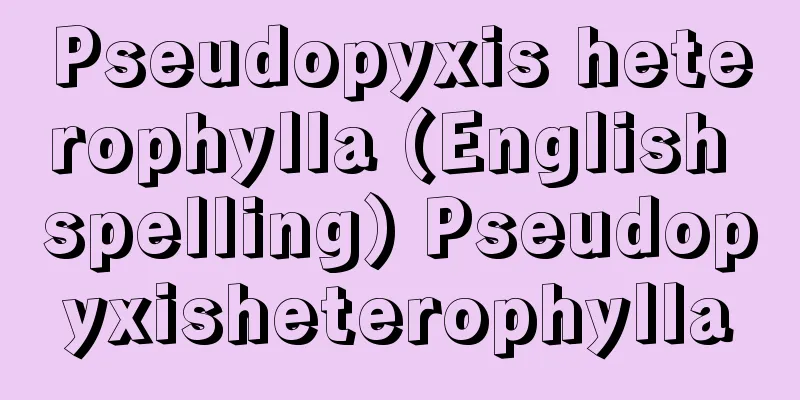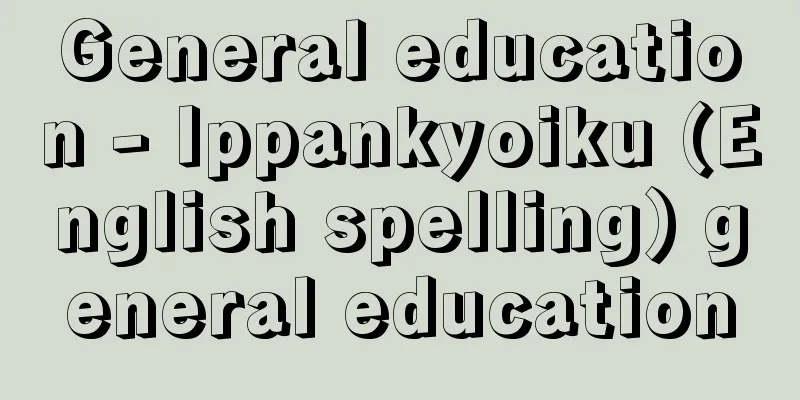Death penalty - Shizai

|
〘noun〙① A general term for the most severe form of punishment, the life sentence. Also, a crime equivalent to death. A punishment that takes the life of the criminal. A crime that should be punished by death. In the Nara period, there were two types: hanging and beheading. →Death penalty①. ※Shoku Nihongi - Keiun 2nd year (705) August Bogo "The peasants are starving, and if they are caught in a trap for their crimes, they will be greatly pardoned under the heavens, and the people will be reborn . The death penalty is over, and if there are no crimes, some are light, some are pardoned . " ※Heike (before the 13th century) 2 "For the first time, the death penalty, which had not been carried out for 25 generations of emperors until the Hogen era, was carried out." [Mozi - Hikōjō ] ② One of the six types of life sentences stipulated in the Imperial Decree during the Edo period. It was a beheading punishment, and the corpse was used as a test beheading . The punishment of being left in a dungeon was added. Other life sentences include sawing, crucifixion , execution, burning at the stake, and geshunin , but these are more severe than scapegoating and less severe than burning at the stake. → Death penalty①. ※Kanazoshi, Takesai (1621-23), Vol. 1 "If the person who entrusted me with this matter were to overhear, I will certainly meet him at the stake."③ A word written at the beginning or end of a letter or memorial. It means equivalent to death, and expresses a feeling of apology for rudeness, and is used in the form of "death penalty, death penalty." ※Man'yoshu (late 8th century), Vol. 17, Vol. 3973, title "I wrote a short letter yesterday, and this morning I heard it . I have confirmed it and submitted it , and will not be sentenced to death again . " [Cao Zhi - Memorial Poetry in Response to the Imperial Rescript on the Punishment of the Emperor]④ (From ③) A word that expresses a feeling of apology, "Gomen wo kido." ※Osaka Shigebana Fudoki (1814) The words of a scholar pretending to be cool: "Please forgive me, but death is a crime." Source: The Selected Edition of the Japanese Language Dictionary About the Selected Edition of the Japanese Language Dictionary Information |
|
〘名〙① 最も重い刑罰としての生命刑の総称。また、死に相当する犯罪。罪人の生命を絶つ刑罰。死刑に処せられるべき犯罪。奈良時代の律では、絞・斬の二種があった。→死刑①。※続日本紀‐慶雲二年(705)八月戊午「百姓飢荒、或陥二罪網一、冝下大二赦天下一、与レ民更新上。死罪已下、罪無二軽重一、咸赦二除之一」※平家(13C前)二「保元までは君廿五代の間おこなはれざりし死罪をはじめてとりおこなひ」 〔墨子‐非攻上〕② 江戸時代、御定書(おさだめがき)に規定された生命刑六種の一つ。斬首刑で、その死骸を試斬(ためしぎり)にされるもの。闕所(けっしょ)の刑が付加された。生命刑として、他に、鋸挽(のこぎりびき)、磔、獄門、火罪、下手人(げしゅにん)があるが、下手人より重く、火罪よりは軽い。→死刑①。※仮名草子・竹斎(1621‐23)上「今此事を頼みし人、もしも洩れ聞き候はば、しざいに逢はんは必定なり」③ 手紙や上表文などの冒頭や終わりに書く語。死に相当するの意で、失礼をわびる気持を表わし、「死罪死罪」の形で用いる。※万葉(8C後)一七・三九七三・題詞「昨日述二短懐一今朝汙二耳目一、更承二賜書一且奉二不次一死罪死罪」 〔曹植‐上責躬応詔詩表〕④ (③から) 謝罪の気持を表わす御免をきどっていう語。※大坂繁花風土記(1814)学者ぶって誠は粋がる詞「御免御免を、死罪死罪」
出典 精選版 日本国語大辞典精選版 日本国語大辞典について 情報 |
<<: Adjustable hook (adjustable hook)
>>: Priest - Shisai (English spelling)
Recommend
Lorsch Abbey - Kloster Lorsch
A medieval royal monastery remains in the town of ...
"Song of Kannan" - Kannan no Uta
…He was an ardent follower of the goddess Shakti,...
ovinnik
...When moving into a new house, it was necessary...
Bedbugs - Bedbugs
A type of insect in the Hemiptera family, Cimex. C...
Cheek (cheek) - Cheek (English spelling)
An area of soft tissue located behind and outsid...
FMC - FMC Corporation
A diversified American company focused on chemical...
Lehmbruck, W.
…After the emergence of Reinhold Begas (1831-1911...
Kanshokuji Temple
...Nonsan-eup, the largest of the districts, is a...
Emperor Komei
Emperor at the end of the Edo period (reigned 184...
Idea of Rome - romarinen (English spelling) Idea of Rome English
An idea that abstracts the city of Rome, the mothe...
Runnin' Wild
...A dance that was very popular in the United St...
African marigold (English spelling)
...It is an annual or perennial plant of the Tage...
dastgāh (English spelling) dastgah
...However, in reality, it is not a strict abstra...
Publius Quintilius Varus
... Thus, during the age of Emperor Augustus, whi...
Sitting posture - Zahou
The way of sitting. Bodhisattva Bosatsu and Buddhi...









